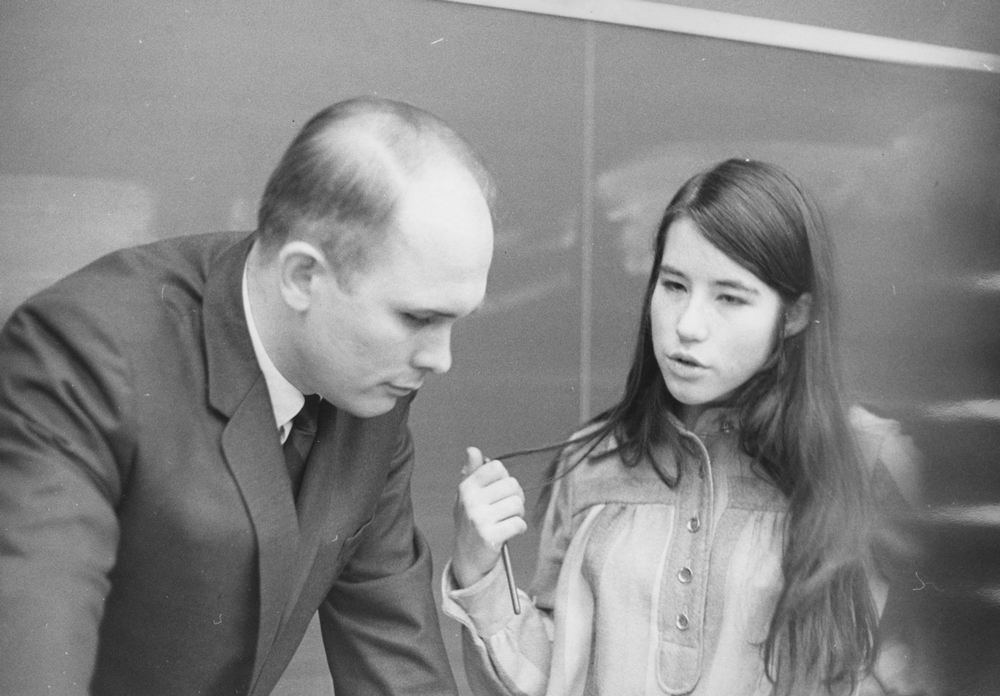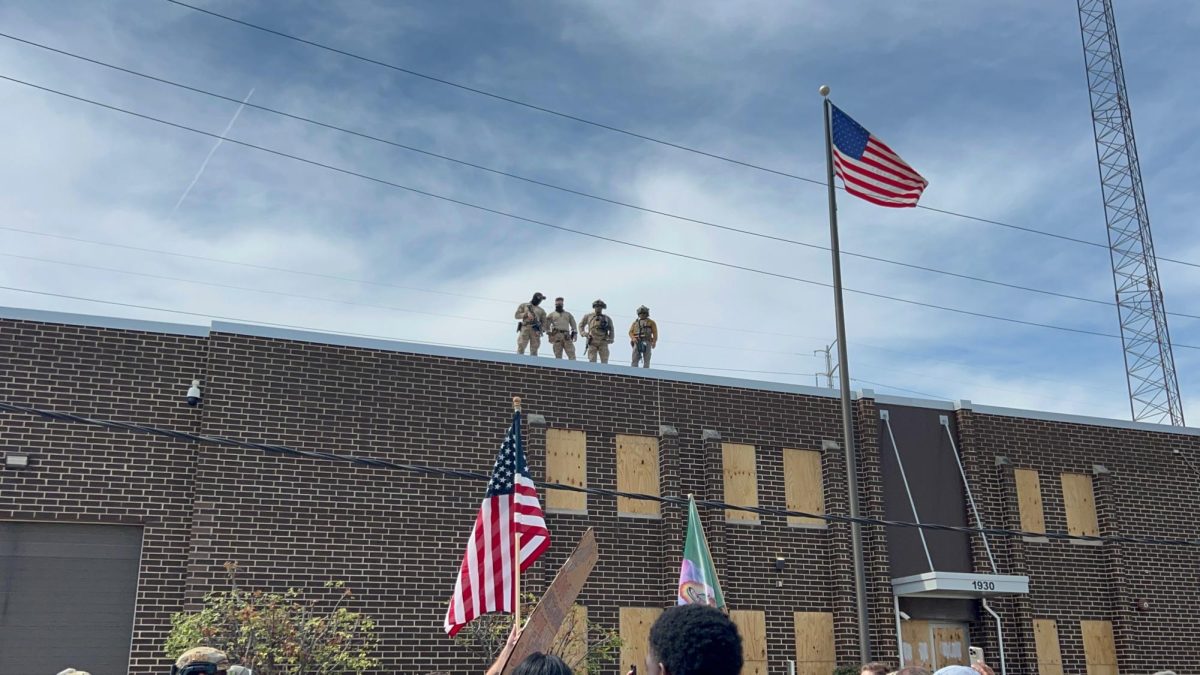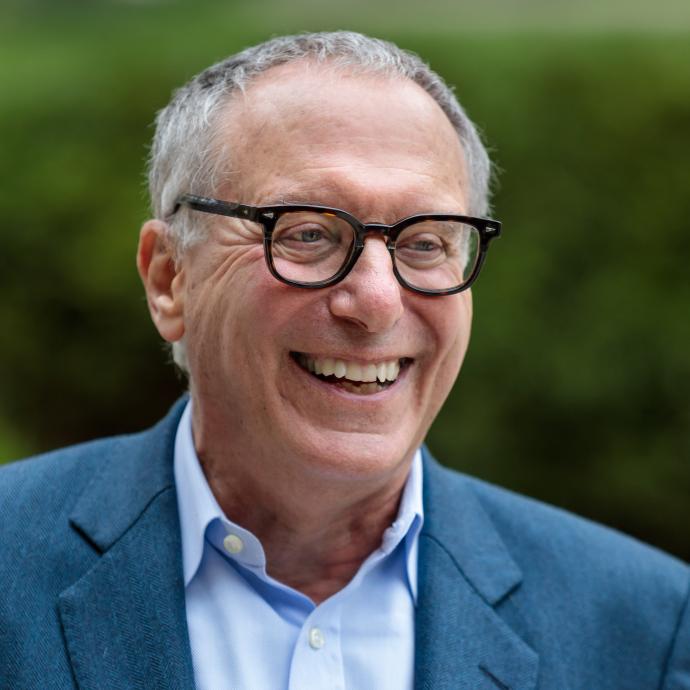A December protest over a legendary blues venue has raised community-wide questions about the University’s role in shaping the landscape in Hyde Park and the greater South Side.
On Wednesday, December 10, members of the organization “Friends of the Checkerboard” gathered near the steps of the Administration building to protest the University’s involvement in providing the Checkerboard Lounge with a generous $7 per square foot lease—about half the going rate—for space at 5201 South Harper Avenue, at the north end of the Harper Court shopping center.
The Checkerboard Lounge, previously located at 423 East 43rd Street, has been closed since April when it was shut down for building code violations. It is a historic Chicago landmark, and its stage has hosted the Rolling Stones, Willie Dixon, and Led Zeppelin, among others. Historically, it was also one of the few racially integrated music venues in Chicago, and it is seen by many as the quintessence of Chicago blues music and culture.
The protestors object to the proposed move on the grounds that the University is stealing a cultural institution and a potential economic anchor for their fledgling community by offering the lounge’s owner, L. C. Thurman, a deal that is “too good to refuse.” The main goal in staging a protest, protestors say, was to gain an audience with President Don Randel and to make the community aware of the situation.
Thurman’s former landlord, Murphy Hughes, offered Thurman a deal to reopen the Checkerboard in Bronzeville at $15 per square foot, more than twice the University’s offer. Thurman says he is not interested, citing that it was his former landlord’s decision to raise rent while neglecting the premises that led to the Checkerboard’s forced closure.
“People in Bronzeville want to keep that resource,” said Della Moran, a Bronzeville resident present at the protest. “Support is great, but what kind of support matters.”
The Bronzeville neighborhood includes the areas of Douglas, Oakland, Fuller Park, Grand Boulevard, Washington Park, and Kenwood north of 47th Street. Bronzeville was where Louis Armstrong revolutionized jazz and where writers Richard Wright and Gwendolynn Brooks drew inspiration, according to the Friends of the Checkerboard website.
The protestors do not view the University’s actions as a solution to keep the Checkerboard on the South Side of Chicago, but rather as an attempt to steal a prized cultural institution from the town of Bronzeville. “We want to challenge the University in its greed,” said Sokoni Karanja, a Bronzeville activist and head of the Center for New Horizons. “We will be back again until the University relents in its attempts to make our institution their institution.”
This winter, Thurman made clear that Bronzeville would soon be without a landmark. In a December 21, 2003 letter received by the University’s Office of Community Affairs, Thurman stated that: “I, Lewis Thurman, am glad to have the opportunity to bring the Checkerboard Lounge to the Hyde Park area. I in no way feel that there was any malicious intent on behalf of the University of Chicago This is a business decision that is sure to be beneficial for all involved, as well as the entire South Side of Chicago.”
The protest has raised the question of whether the residents of Bronzeville should be involved in these negotiations. Bernard Lloyd, one of the organizers of the protest, said his group received a letter from the University saying that it was seeking a “mutually acceptable” location. However, while the present arrangements are acceptable for Thurman, they are not acceptable for Friends of the Checkerboard. “Yes, it would be reasonable to say that [the letter] meant that [the final location] would be acceptable to the University, L.C. Thurman, and to us,” Lloyd said.
Any tension between Thurman and the protestors was not clear at the onset of the December demonstration. Thurman said he came to the protest to support the protestors, but later during the protest he began to exhibit a different attitude. When given the megaphone, Thuman shocked the crowd when he said, “People in Bronzeville didn’t come anyway. All those University students supported me.” The crowd expressed its discontent by chanting loudly, “U of C, look at your history!”
“The Checkerboard Lounge is such an important piece of Bronzeville. [The University’s offer] is very shortsighted. [It was offered] in its own selfish interest. They’re trying to create more entertainment in Hyde Park,” Lloyd said.
Members of the University community see a different situation. Ryan Hollon, a third-year in the College and member of the student advocacy group Angels of Def, said the Checkerboard protest must be understood in a much wider context.
“As has been stated a number of times, the University is not in the business of subsidizing small-business owners. On its own this is fine and good. The problem arises when this stance is considered against the University’s history of racist policies decades ago,” Hollon said. “That structure of feelings is remembered among many community residents. Many have witnessed firsthand the effects of the University’s policies, and younger residents have often heard the stories. Given this historical context, there is a need for the U of C to extend itself more positively into the community in order to change the negative perceptions of the U of C that persist today.”
Students also contend that the University only informs students about issues after decisions have been made. “Protests, letters, campaigns, and other forms of community activism are a mere farce if there is no longer a decision-making process to influence,” said Ben Fink, a second-year in the College. “Whether you think any particular decision the administration makes is justified or not, the policy of decide first, ask for community opinion later has got to stop.”
However, other students think the Checkerboard protest actually detracted from the cause of improving University-community relations. “When people don’t do their homework and protests get undercut this way by the supposed victims, it diminishes the effect of every other protest the students may want to participate in,” said Reid Aaronson, a second-year in the College.
Chris Wand, also a second-year in the College, concurred. “There is something seriously wrong when the protest itself becomes more important than advancing the object of the protest.”
Most students agree that the presence of the Checkerboard near campus will greatly improve University social life, and also recognize the cultural significance of having a blues club near campus. “Historically, blues has been a very important part of the city and its history. It would be wonderful for that to be placed within easy reach of the students, who tend to be by and large ignorant of the role that blues has played in shaping Chicago’s culture,” said Adrian Arroyo, a fourth-year in the College.
Vice President for Community Affairs Hank Webber said the December protest was small and may have been motivated by recent economic factors. “Many community members on the South Side had strong views, many of them very supportive and even angry. For some in Bronzeville, the loss of the Checkerboard is a blow, coming in the heels of other losses in recent years,” he said.
Webber said that a follow-up meeting was scheduled after the protest, although Lloyd said he is not aware of any such meeting.
Addressing comments that the University should be helping the Checkerboard remain in Bronzeville, Webber explained that the University is providing a venue to allow a nationally important institution to continue. Since the University does not own any real estate in Bronzeville, utilizing a Hyde Park building allowed the institution to remain on the South Side.
Webber said the next step in bringing the Checkerboard to Hyde Park is creating a lease, building the space for the lounge, and obtaining a liquor license. He said he expects the Checkerboard to reopen early in the summer of 2004.
1-13-04checkerboardlounge








